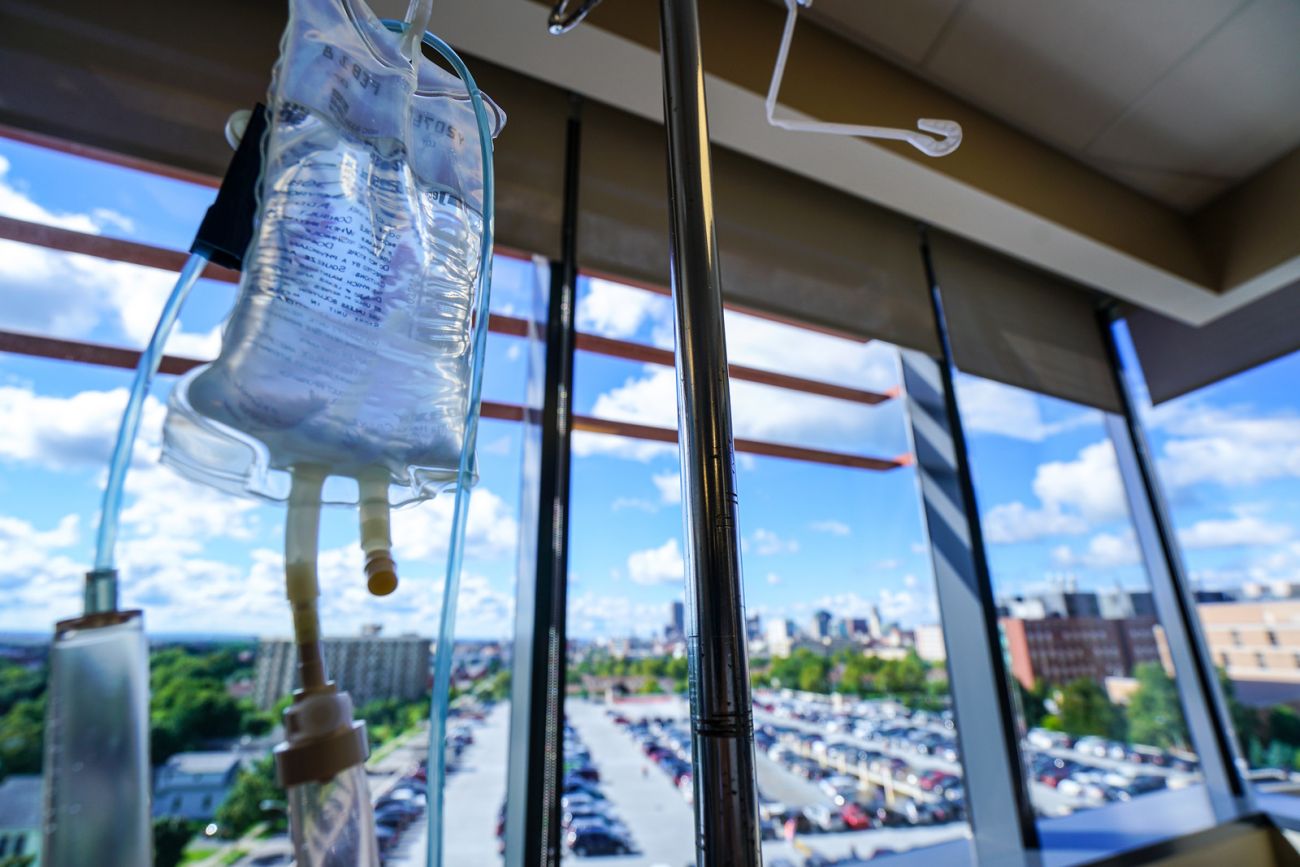Advances in chemotherapy have made testicular cancer one of the most curable solid tumors.
Chemotherapy is most often used in conjunction with surgery to treat testicular cancer. When the chemotherapy is given after the surgery to lower the risk that the cancer will come back, it's referred to as adjuvant therapy.
Chemotherapy is a systemic therapy, meaning that drugs travel throughout your body via the bloodstream and affect normal as well as cancerous cells. The drugs given in cycles — successive days of treatment followed by a rest period, or days of no treatment to allow your body to recover. Chemotherapy may be part of the treatment plan for some patients with Stage 2 testicular cancer, and all patients with Stage 3. Some Stage 1 patients choose to have chemotherapy to reduce risk of recurrence.
Several chemotherapy drugs are used in the treatment of testicular cancer and because these drugs work in different ways, using two or more drugs together works better than using any of them alone. These drugs include:
- Bleomycin
- Etoposide
- Cisplatin
- Ifosfamide
- Paclitaxel
- Vineblastine
The most effective combinations against testicular cancer are: BEP (bleomycin, etoposide and cisplatin), EP (etoposide and cisplatin), and VIP (etoposide or vinblastine plus ifosfamide and cisplatin). The therapy usually involves three to four cycles of treatment over a period of three months. Your treatment team will choose your chemotherapy regimen specifically for you and your individual cancer.
Side effects from chemotherapy depend largely on the specific drug(s) being used, your general health, and the dose. Some common side effects include bone marrow depression (increased risk for bleeding, anemia, and infection), fatigue, nausea/vomiting, rash, and/or hair loss. If you will be having chemotherapy, you will be given complete information about the specific drugs in your regimen, which side effects can be expected and how your treatment team plans to manage them.
